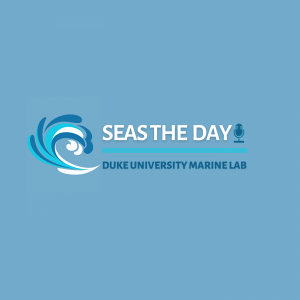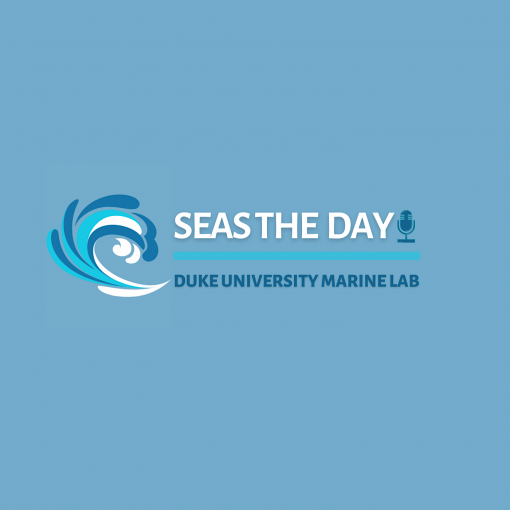The Convention of Biological Diversity is set to meet in October 2021 and will discuss adopting a new target of protecting 30% of the ocean by 2030. Over the last two decades, there has been a drastic increase in the number of large-scale marine protected areas (MPAs) driven mainly by international MPA targets and a “bigger is better” approach to conservation. In this episode, Megan Swanson and Sage Riddick explore how these often remote ocean spaces can still have important social impacts by looking at two cases: the Chagos Marine Protected Area and the Papahānaumokuākea Marine National Monument.
Listen Now
Episode Hosts
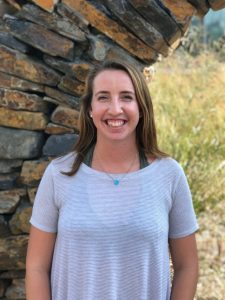
Sage Riddick, Master in Environmental Management, Duke ’21.
Sage is currently a Policy and Constituent Affairs Analyst for NOAA’s National Ocean Service. While at Duke, she received certificates in Geospatial Analysis, Community-Based Environmental Management, and International Development Policy. Sage also interned with the Marine Conservation Institute and assessed protection levels of marine protected areas in the United States. When Sage isn’t working, she can be found exploring Washington, D.C. with a Dunkin’ iced coffee in her hand.
Twitter: @sageriddick
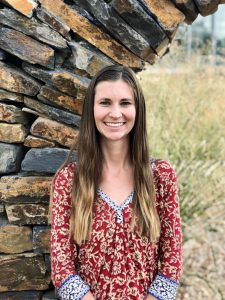
Megan Swanson, Master of Environmental Management, Duke ’21.
Megan first became interested in marine protected areas after interning in NOAA’s Office of National Marine Sanctuaries during the summer of 2020. During her time at the Nicholas School, Megan worked with Professor Erika Weinthal on environmental security issues in the Middle East and with Dr. Dan Rittschof on microplastic pollution in marine invertebrates.
Interviewees
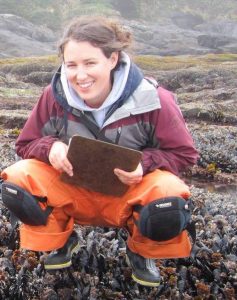
Dr. Jenna Sullivan-Stack is an ecologist and conservation scientist with a passion for finding and sharing science-driven solutions to threats facing our ocean. She is currently a Postdoctoral Scholar at Oregon State University working on a new science-based framework for marine protected areas called The MPA Guide, which can be used to plan and track MPAs globally, and to connect their level of protection with the outcomes they can be expected to provide for nature and people. Jenna conducted her PhD research in ecology of the Oregon coast rocky intertidal communities, also at Oregon State University.
Twitter: @_jsullivanstack
Recent Work (linked in bio): https://www.protectedplanet.net/en/resources/mpa-guide
Series Host
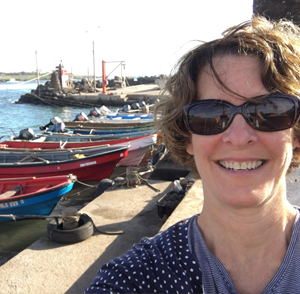
Dr. Lisa Campbell hosts the Conservation and Development series. The series showcases the work of students who produce podcasts as part of their term projects. Lisa introduced a podcast assignment after 16 years of teaching, in an effort to direct student energy and effort to a project that would enjoy a wider audience.
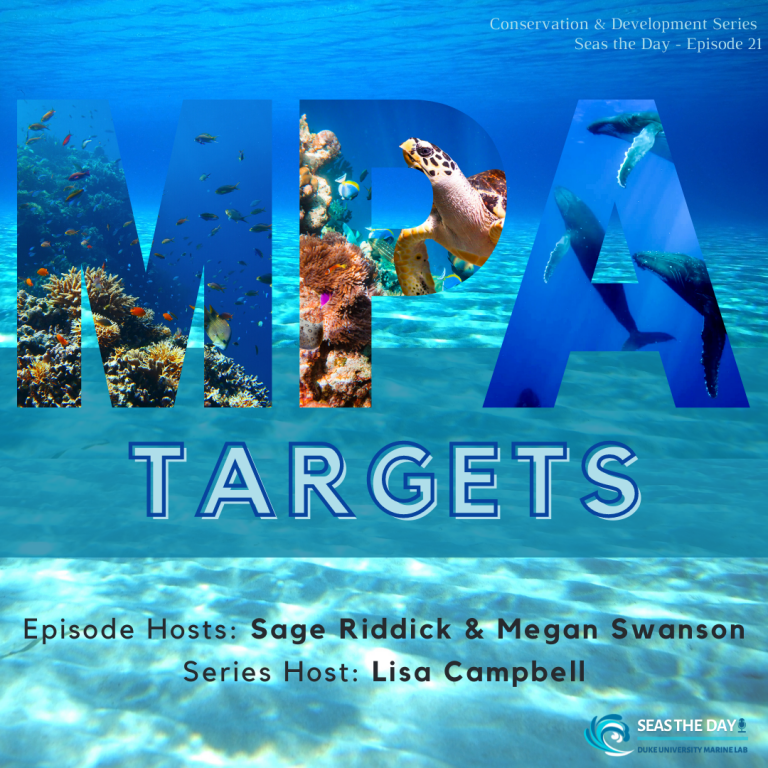
TRANSCRIPT
EPISODE 21: Marine Protected Areas Targets
Lisa Campbell: Hey listeners, thanks for tuning in to Seas the Day. I’m Lisa Campbell, host of our conservation and development series. In today’s episode, Sage Riddick and Megan Swanson ask they question “is bigger always better” in relation to the trend in marine conservation towards the establishment of what are called very large marine protected areas. The trend began about 15 years ago, has been driven at least in part by global conservation targets adopted in the Convention on Biological Diversity. In 2010, parties to the convention agreed that by 2020, 10% of oceans should be protected; currently, parties to the convention are negotiating the next set of targets, and the number under consideration is 30% by 2030. Sage and Megan will unpack the relationship between targets and large marine protected areas in the episode, but my point here is that the topic is a timely one. Negotiations in the Convention were supposed to be completed in 2020, but they’ve been delayed by the COVID 19 pandemic. When Sage and Megan recorded the episode in the spring of 2021, final negotiations on the 2030 targets were scheduled for Oct. 2021, and you’ll hear Sage and Meagan reference this time line. However, targets are now set to be finalized in April or May of 2022. So, the date to set the targets has been – wait for it – a moving target.
Over to Sage and Megan.
Sage Riddick: As of January 2021, 50 countries have committed to a new goal to protect 30% of the ocean by 2030. This is by far the biggest and most ambitious target yet to protect our ocean biodiversity. Nations are already establishing large marine protected areas or MPAs to meet previous protected area targets. And a new goal of 30% will likely continue this trend.
Many large MPAs established to date have been in remote locations and have relatively few stakeholders that need to be considered, especially when compared to smaller, coastal MPAs. And because of this, large MPAs have been seen as politically easier to establish. However, research has shown that this is not necessarily true and that many local and indigenous communities have strong historical and cultural ties to these remote, ocean areas.
But will this push to designate new large MPAs to meet a new 2030 target lead nations to neglect these important social interactions and potentially undermine local and indigenous communities?
Music Interlude
Sage: You’re listening to the Conservation and Development, a series from Seas the Day. I’m Sage.
Megan Swanson: And I’m Megan. And today, we’ll be talking about MPAs, how there’s been a recent push to establish very large MPAs, and why these large, often remote areas, have important social implications that need to be considered. We’ll explore the human dimensions of large MPAs by looking at two cases – the Chagos MPA and the Papahanaumokuakea Marine National Monument.
Sage: Before we dive in, Megan, can you describe what an MPA is and why are they so important?
Megan: Yes, so the International Union for Conservation of Nature defines a protected area as “a clearly defined geographical space, recognized, dedicated and managed, through legal or other effective means, to achieve the long-term conservation of nature with associated ecosystem services and cultural values.” So a marine protected area is a protected area in coastal or marine environments. MPAs are a key tool for marine conservation, and governments have used them for decades to protect ocean resources and prevent their overexploitation, and also preserve cultural heritage. They can vary in levels of protection. On one end, there are minimally protected MPAs that still allow certain extractive activities like fishing. And on the other end, there are fully protected or no-take MPAs that ban all extractive human activities such as commercial fishing, oil and gas drilling and seabed mining.
Jenna: So we know that marine protected areas when they’re fully or highly protected actually do a really good job of recovering biodiversity and the many benefits that it provides.
Sage: That was Jenna Sullivan-Stack, a post doctoral scholar who is studying MPAs at Oregon State University, and she told us about the ecological benefits that MPAs provide.
Jenna Sullivan-Stack: Well protected MPAs make the fish and other creatures inside more abundant and larger which is actually really important for a lot of species in terms of their reproductive output, their body size is really important so when you protect a fish inside a MPA and let it grow really big. It produces a lot more offspring and some of those may spill over to the areas outside of the reserve boundaries. So that’s what’s called a boffff, big old fat fertile female fish. So those are really important benefits of good protection, and that actually spillover can have important consequences not just for biodiversity, but also for fisheries maybe if it’s a targeted species, you can have spillover of fish into nearby fished areas outside of the MPA.
So, also a benefit of fully and highly protected MPA is that they can help provide current climate solutions by doing things like protecting vegetated habitats like mangroves, seagrass beds, things that sequester carbon. By protecting the carbon that’s stored in the sea floor, protecting it against dredging and trawling and things that will disturb the seafloor and allow that carbon to remineralize into the ocean. Providing coastal protection for all these things that people really need out of their ocean.
Sage: So now that we have an idea of the ecological benefits MPAs provide, how did we get to this proposed target of 30% by 2030?
Megan: Over the years, there have been specific targets for how much of the ocean should be protected. The Convention on Biological Diversity or CBD set its first MPA target in 2006 — a goal of protecting 10% of the world’s marine and coastal ecological regions by 2012. In 2010, the CBD negotiated its next set of biodiversity targets for 2020 and retained the same 10% area coverage target for MPAs.
Even though we still haven’t met the current 10% target, the CBD is meeting in October of 2021 and is considering adopting an even more aggressive target of 30% protection of the ocean by 2030. While the CBD hasn’t officially adopted the 30 by 30 target yet, over 50 nations have already committed to this goal.
Sage: So why specifically 30%? Let’s hear again from Jenna on where this 30% figure came from.
Jenna: Now we know from the best available science that something like 30% is actually the minimum that we need to protect, in order to get the benefits that we need out of our biodiversity protection. So I guess that’s the main point is this 30% is really grounded in science, and there’s been a number of scientific syntheses and meta analyses that are all pointing to the minimum percentage needed as 30% and likely a little bit more than that even. In order to get our biodiversity benefits which is the main goal of an MPA.
Sage: Right now, 7.65% of the ocean is protected by an MPA according to the World Database on Protected Areas, which means we have a long way to go to reach 30%. We have made progress though! When these MPA targets were first set, that figure was less than 1%. And much of this increase in protection has been due to the emergence of large MPAs.
Megan: So historically most MPAs were relatively small and located near the coast. However, over the last two decades there has been an increasing number of large-scale MPAs which are typically considered anything over 100,000 square kilometers. For reference that is roughly the size of Iceland! And these large scale MPAs can protect diverse habitats and migratory species and provide resilience to some climate change impacts, in addition to the ecological benefits Jenna discussed earlier.
The need for nations to meet these global targets isn’t the only thing driving an increase in large MPAs. There has also been the development of a “bigger is better” approach to conservation, and that larger MPAs provide unique ecological benefits that smaller ones don’t. NGOs such as Pew Charitable Trusts and Conservation International have been strong advocates for large MPAs. And in some cases have helped to establish and even fund them.
These large MPAs are mostly located in pretty remote areas of the ocean around small island nations where populations are low and there are few user conflicts. Because of this, large MPAs have been seen as a way to bypass human impacts that are very prevalent in nearshore MPAs and are considered more politically expedient to establish. Increasing research has shown that this is not true, and in fact, these large MPAs still have very important social implications that need to be considered.
Sage: But, before we get into the human dimensions, let’s review what we know about MPAs. MPAs are an important tool for conservation. They can protect critical habitats and allow exploited populations to recover. As Jenna said, an MPA can increase biodiversity not just inside the MPA, but outside of it due to the spillover effect. While most of the MPAs historically have been small and coastal, we’ve seen a drastic increase in large MPAs in recent years. This is partially due to the need for nations to meet global targets, but also because large MPAs are believed to have additional ecological benefits. With that quick overview, let’s transition into the social impacts of large MPAs.
Megan: By looking at existing large MPAs, we know that indigenous and local communities can have strong historical and cultural connections to these ocean spaces. The CBD has acknowledged these connections and when it negotiated its MPA target for 2020, it added in language that said MPAs should be equitably managed. We asked Jenna to elaborate on why social impacts need to be considered when establishing these large MPAs.
Jenna: Social impacts are really important to consider when designing any marine protected area large or small. There are a lot of things, you know, an MPA that doesn’t have the support of its community because maybe they don’t believe that it’s useful or it doesn’t help them achieve their goals, maybe it’s setup designed wrong or at the wrong level of protection, then it pretty much. There’s a lot of research that shows that it’s not going to be successful at achieving its biodiversity goals, or any of its other goals.
Sage: Ignoring human dimensions of MPAs is not only an outdated and problematic conservation strategy, but like Jenna just mentioned it can also undermine long-term conservation outcomes.
We’ve seen in the past and described in a scientific article by Spalding and colleagues, when MPAs are unsuccessful in implementing biodiversity protection, it can be because traditional and cultural rights to an area have not been recognized.
In the same paper, the authors explain that many conservation initiatives including MPAs have led to lost livelihood opportunities, displaced communities, and increased poverty from taking away an important food and income source — fishing. The authors explain more that it is important for these MPAs to be equitably managed because it is ethically right to include all people in the process and to develop the support for conservation. By better understanding and mitigating negative social impacts resulting from an MPA, we can improve social acceptance and community buy-in that ultimately contribute to ecological success of an MPA.
Megan: Authors Charles and Wilson from Canada studied the human dimensions of MPAs and found when developing effective MPAs it is important to include stakeholder input at the beginning of the process and in participatory planning throughout all stages. This allows for collaborative discussion and exchange of ideas to lead to mutually acceptable solutions by all parties involved. When local communities and other stakeholders are allowed to work with the government and participate in management, it creates a co-management process that can help the success of an MPA.
Sage: To understand the role large-scale MPAs play in social equity and the importance of including indigenous voices in all phases of the design and management process, we’ll be looking at two large-scale MPAs – the Chagos Marine Protected Area in the Indian Ocean and Papahanaumokuakea Marine National Monument in the Pacific Ocean.
These are two of the largest MPAs in the world and they are both entirely no-take zones meaning they prohibit human activities such as fishing, mining and other extractive activities. Additionally, both areas have a history of colonization from countries in the Global North. While very similar in those respects, Papahanaumokuakea and Chagos have taken different approaches to address the human dimensions of these ocean spaces, particularly with engaging indigenous communities who value the areas they occupy.
[Ocean Interlude]
Megan: First, let’s go to an area in the middle of the Indian Ocean, halfway between India and Madagascar – the Chagos Archipelago. It consists of more than 50 islands and has been described as “the most pristine tropical marine environment surviving on the planet.” It is also part of one of the largest MPAs in the world, twice the size of Vietnam.
But the Chagos MPA has a long and complicated history of establishment and implementation involving numerous legal battles and the fight for the native Chagossians to return to their homeland after being removed by the UK decades earlier.
Sage: What’s the history behind the Chagos Archipelago and its colonization by the UK?
Megan: This confusion and criticism dates back to UK colonization of the Chagos Islands in the early 1800s. But in 1968, the UK separated the Chagos Islands from Mauritius. It agreed to give Mauritius its independence but maintained ownership of the Chagos Islands. Soon after, the British government forcibly removed all of the native Chagossians from the Chagos Archipelago to make way for a US Military Base. The base was established in 1977 and the UK later extended the contract for the base to stay until 2036.
Native Chagossians were displaced to Mauritius, the Seychelles, and the UK. Since this displacement, Chagossians have been fighting to return home. And it was in the midst of this battle, that the UK designated the Chagos Marine Protected Area in 2010. At the time it was the largest no-take MPA in the world, banning all human activities except in the waters directly surrounding the military base.The designation was welcomed by many including some of the largest environmental and science groups such as Greenpeace, Pew Environmental Group, and the Royal Society that called the MPA “inspirational” and a “global benchmark for responsible ocean stewardship.” However, the decision also drew criticism since the MPA was established in the midst of the European Court of Human Rights’ deliberation on whether Chagossians had the right to return to their home. And by making fishing illegal, the UK effectively made it impossible for the Chagossians to return, since fishing was their main source of food and a crucial part of their livelihood.
Sage: Weren’t there actually wikileaks released from behind the scenes on these decisions?
Megan: Yeah, private documents were released on wikileaks. And based on these documents many believe the UK did not establish the marine reserve for conservation, but rather to further their own political agenda.
In the released leak of the cable relays, the British Director of the Foreign and Commonwealth Office said the MPA was only created for security reasons and is “the most effective long-term way to prevent any of the Chagos Islands’ former inhabitants or their descendants from resettling.”
And to add to the UK’s questionable motives for establishing the MPA, a number of news outlets have pointed out that the waters around Chagos were already pristine and there was no evidence that any species had been overfished except for the waters right around the island, Diego Garcia – the location of the U.S. military base and the only currently inhabited island in the Chagos archipelago. There are also reports that the US military base dredged and used coral to create roads, raising significant environmental concerns. Yet Diego Garcia, the only area where there has been documented overfishing and environmental destruction, is exempt from the MPA restrictions allowing military personnel who live on island to fish.
Sage: So what is happening now, are the Chagossians still not allowed to return?
Megan: That’s a good question. Following a number of previous legal battles, Mauritius and Chagossians most recently brought their fight to return home to the International Court of Justice – the United Nations highest court. And in February of 2019, the court shared its opinion that “The process of decolonization of Mauritius was not lawfully completed when that country acceded to independence in 1968, following the separation of the Chagos Archipelago” and that “the UK is under an obligation to bring to an end its administration of the Chagos Archipelago as rapidly as possible.” In May of 2019, the UN General Assembly voted for a resolution that reaffirmed the International Court of Justice’s opinion, calling on the UK to withdraw from Chagos within six months and also stating that Chagossians should be able to return home. But since then, the UK has refused to leave and not allowed the Chagossians to return.
Sage: Clearly the Chagos MPA has had its fair share of political and legal challenges. While it is unclear if or when the Chagossians will ever be allowed to return home, they have expressed an interest in playing a role in the conservation efforts. Dr. Rambaree, a professor in Sweden, interviewed Chagossians on their thoughts on comanaging conservation efforts in Chagos. One Chagossian interviewee said, “We want our homeland to always be the wonderful place that it is and we want to play our part in its conservation by living there and guarding it.”
Megan: Chagos provides a rather extreme example of a country establishing an MPA for political gains rather than conservation. And in doing so the UK neglected important social equity concerns and undermined human rights.
[Ocean Interlude]
Now, let’s turn to another large MPA that has been considered by many to be better at including indigenous people. And that is the Papahanaumokuakea Marine National Monument in the U.S.
Papahanaumokuakea Marine National Monument is an MPA in the remote and largely uninhabited Northwestern Hawaiian Islands. The MPA was designated in 2006 and later expanded in 2016 and is now the third largest protected area in the world at nearly twice the size of Chile! Like Chagos, Hawaii also has a history of colonization. The U.S. annexed Hawaii in 1898, made the islands a territory in 1900 and Hawaii became a state in 1959.
Sage: For Native Hawaiians the Northwestern Hawaiian Islands are a sacred ancestral homeland from which life arises and to which spirits return after death. Protecting these areas is important to their culture. When the MPA was established in 2006, it was named the Northwestern Hawaiian Islands Marine National Monument, but to honor Native Hawaiians’ foundation in the connection between people and nature, Native Hawaiian cultural leaders created a new name for the MPA, Papahanaumokuakea Marine National Monument.
Megan: The establishment of the MPA required federal agencies to co-manage the area and created the Monument Management Board. And included on this board is the Office of Hawaiian Affairs to help make co-management decisions. The National Oceanic and Atmospheric Administration or NOAA, the federal agency responsible for managing the MPA, is also on the board. NOAA also created the Reserve Advisory Council which included Native Hawaiians, marine scientists, commercial and recreational fishing representatives, a representative of the State and other agencies. These stakeholders help advise NOAA on issues brought to the Monument Management Board.
Sage: Unlike Chagos, the indigenous population has not been completely excluded from using the MPA. Native Hawaiians can apply for special use permits if they meet specific criteria such as:
- “The purpose and intent of the activity are appropriate and deemed necessary by traditional standards in the Native Hawaiian culture or pono, and demonstrate an understanding of, and background in, the traditional practice, and its associated values and protocols.
- Or the activity benefits the resources of the Northwestern Hawaiian Islands and the Native Hawaiian community.
- Or the activity supports or advances the perpetuation of traditional knowledge and ancestral connections of Native Hawaiians to the Northwestern Hawaiian Islands.”
These permits have been used to sail using traditional practices and to conduct cultural and scientific ecosystem monitoring throughout Papahanaumokuakea.
Megan: Although there have been benefits from co-managing the MPA, some Native Hawaiians were unhappy when the MPA was expanded in 2016. Former governors and senators of Hawaii were amongst the group who were concerned with the expansion. They led rallies and sent letters to the President. A former governor of Hawaii sent a letter saying “Native Hawaiian rights and Hawaii State rights have not been considered, and there is no transparency in this process. No economic impact study was conducted to determine the impact of this proposed expansion.” Even though approval from the community wasn’t unanimous, they were able to share their concerns. This also highlights the challenges in accounting for the diverse interests of Native Hawaiians. So despite not being entirely conflict free, the Papahanaumokuakea case provides an example of how an MPA can include indigenious voices and get community buy-in to ensure the success of the MPA.
[Music Interlude]
Sage: So while these two MPAs share some key similarities: they are both extremely large, no-take zones, that were established around island nations that have a history of colonization, there are also some major differences. The Chagos MPA was created with questionable political motives and neglected important equity and human rights considerations. By establishing an MPA that excludes the native Chagossians from returning, it sustained the injustices that were felt when they were first displaced. In contrast, in the case of Papahanaumokuakea, Native Hawaiians have been involved since the beginning, helped co-manage the MPA and can use the MPA for cultural purposes. While some Native Hawaiians have been unhappy with certain decisions made, overall Papahanaumokuakea has been considered successful in integrating native Hawaiian cultural practices, values and leaders into the management of the MPA.
These two cases also highlight how social impacts within MPAs are place-based.
We saw that the different human and ecological conditions within each area led to unique circumstances that need to be considered. In the case of Papahanaumokuakea, the MPA benefited from including the local communities throughout the process. But in the case of Chagos, since the UK seems intent on preventing the return of Chagossians, it’s unlikely that their participation in the large MPA would overcome the equity concerns that have been raised.There should be no blanket approach for addressing these social impacts since no two MPAs will have identical stakeholder concerns. And MPA managers need to be attentive to the wide variety of human dimensions that can still be present in these remote areas.
Megan: The CBD stated that the protected area targets need to create “equitably and effectively managed” MPAs but it is ultimately up to each country to decide what that means. Although many large-scale MPAs are created in remote areas and have been thought to have little human impact, we’ve seen with Chagos and Papahanaumokuakea this is not necessarily true. Local and indigenous communities can still have strong historical and cultural connections to these ocean spaces. And engaging with these communities throughout the entire process – from establishment to management – can help address potential user conflicts, mitigate negative human impacts, and ultimately ensure success of the MPA. And as new large-scale MPAs are created, especially if the CBD decides to adopt the new 30% target when it meets in October of 2021, it will be even more important that these human dimensions are taken into account.
Large scale MPAs may be easier to designate and able to protect large ecosystems, but social impacts need to be considered and accounted for before we race towards protecting 30% of our ocean.
[Music Interlude]
Thanks for listening. To learn more about the Chagos MPA, we recommend reading work by Sand and DeSantos. For details on Papahanaumokuakea, we drew on work by Kikilio and Kittinger. Further details on these and other sources can be found on the Seas the Day website.
[Fade out music]
Hey listeners, thanks for tuning in to Seas the Day. I’m Lisa Campbell, host of our conservation and development series. In today’s episode, Sage Riddick and Megan Swanson ask they question “is bigger always better” in relation to the trend in marine conservation towards the establishment of what are called very large marine protected areas. The trend began about 15 years ago, has been driven at least in part by global conservation targets adopted in the Convention on Biological Diversity. In 2010, parties to the convention agreed that by 2020, 10% of oceans should be protected; currently, parties to the convention are negotiating the next set of targets, and the number under consideration is 30% by 2030. Sage and Megan will unpack the relationship between targets and large marine protected areas in the episode, but my point here is that the topic is a timely one. Negotiations in the Convention were supposed to be completed in 2020, but they’ve been delayed by the COVID 19 pandemic. When Sage and Megan recorded the episode in the spring of 2021, final negotiations on the 2030 targets were scheduled for Oct. 2021, and you’ll hear Sage and Meagan reference this time line. However, targets are now set to be finalized in April or May of 2022. So, the date to set the targets has been – wait for it – a moving target.
Lisa: Thanks for listening to Seas the Day.
Today’s episode was written and recorded by Sage Riddick and Megan Swanson.
Rafa Lobo edited the podcast, and our theme music was written by Joe Morton.
Our artwork is by Stephanie Hillsgrove.
Please Follow us on Instagram and Twitter at seasthedaypod
And if you want to learn more about today’s episode and its authors, visit our website at sites.nicholas.duke.edu/seastheday.
If you enjoyed today’s episode, please leave us a rating on apple podcasts, or wherever you listen.
END OF TRANSCRIPT
Targets
REFERENCES
Citations
Artis, E., Gray, N. J., Campbell, L. M., Gruby, R. L., Acton, L., Zigler, S. B., & Mitchell, L.. (2020). Stakeholder perspectives on large-scale marine protected areas. PLOS ONE, 15(9), e0238574. https://doi.org/10.1371/journal.pone.0238574
Campbell, L.M., and Gray, N.J. (2018). Area expansion versus effective and equitable management in international marine protected areas goals and targets. Marine Policy, 10, 192-199. https://doi.org/10.1016/j.marpol.2018.11.030
Carey S. (2010). Chagos islanders must be allowed home. The Guardian.
http://www.guardian.co.uk/commentisfree/2010/may/30/chagos-islanders-return-william-
hague
Charles, A., & Wilson, L.. (2009). Human dimensions of Marine Protected Areas. ICES Journal of Marine Science, 66(1), 6–15. https://doi.org/10.1093/icesjms/fsn182
De Santo, E. M. (2013). Missing marine protected area (MPA) targets: How the push for quantity over quality undermines sustainability and social justice. Journal of Environmental Management, 124, 137-146. https://doi.org/10.1016/j.jenvman.2013.01.033
Dunne, R. P., Polunin, N. V. C., Sand, P. H., & Johnson, M. L. (2014). The Creation of the
Chagos Marine Protected Area. In Advances in Marine Biology. Advances in Marine Biology, 79-127. https://doi.org/10.1016/b978-0-12-800214-8.00003-7
Freestone, David, A Ole Varmer, B Meredith, C T Aulani Wilhelm, D M Theodore, E Jeff Ardron,
and F Sara Maxwell. (2014). “Place-Based Dynamic Management of Large-Scale Ocean Places: Papahānaumokuākea and the Sargasso Sea.” Stanford Environmental Law Journal 33 (2): 191–248.
Gruby, R., Fairbanks, L., Acton, L., Artis, E., L.M., Campbell, Gray, N., Mitchell, L., Jones Zigler, S.B., Wilson, K. (2017). Conceptualizing Social Outcomes of Large Marine Protected Areas. Coastal Management, 45(6), 416-435, https://doi.org/10.1080/08920753.2017.1373449
Kikiloi, K., Friedlander, A. M., Wilhelm, . ‘Aulani ., Lewis, N., Quiocho, K., ‘Āila, W., &
Kaho’Ohalahala, S. (2017). Papahānaumokuākea: Integrating Culture in the Design and
Management of one of the World’s Largest Marine Protected Areas. Coastal Management, 45(6), 436–451. https://doi.org/10.1080/08920753.2017.1373450
Kittinger, John N., Anne Dowling, Andrew R. Purves, Nicole A. Milne, and Per Olsson. (2011).
“Marine Protected Areas, Multiple-Agency Management, and Monumental Surprise in the Northwestern Hawaiian Islands.” Journal of Marine Biology, 1–17. https://doi.org/10.1155/2011/241374.
Martinez, J. (2016). Akaka, Ariyoshi challenge expansion of national marine monument. Hawaii
News Now. https://www.hawaiinewsnow.com/story/32547139/former-hawaii-politicians- challenge-expansion-of-marine-national-monument/
Northwestern Hawaiian Islands Marine National Monument, 71 Fed. Reg., 51134, (August 29,
2006) (to be codified at 50 CFR, Part 404)
Rambaree, K. (2020). Environmental Justice in the Case of the Chagos Marine Protected Area:
Implications for International Social Work. Sustainability, 12(20), 8349. https://doi.org/10.3390/su12208349
Pearce, F. (2019). Will Large Protected Areas Save the Oceans or Politicize Them? Yale
Environment 360.
https://e360.yale.edu/features/will-large-protected-areas-save-the-oceans-or-politicize-them
Protected Planet. (2021). The World Database on Protected Areas: Marine Protected Areas.
https://www.protectedplanet.net/en/thematic-areas/marine-protected-areas
Resolution adopted by the General Assembly on 22 May 2019 https://undocs.org/en/A/RES/73/295
Sand, P. H.. (2012). Fortress Conservation Trumps Human Rights?. The Journal of Environment
& Development, 21(1), 36–39. https://doi.org/10.1177/1070496511435666
Spalding, D. M., Meliane, I., Bennett, N.J., Dearden, P., Patil, P. G., and Brumbaugh, R. D..
(2016). Building towards the marine conservation end-game: consolidating the role of MPAs in a future ocean. Aquatic Conservation: Marine and Freshwater Ecosystems, 26, 185–199. https://doi.org/10.1002/aqc.2686
Voorberg, W., & Van Der Veer, R.. (2020). Co-Management as a Successful Strategy for Marine
Conservation. Journal of Marine Science and Engineering, 8(7), 491. https://doi.org/10.3390/jmse8070491
WikiLeaks. (2009). HMG Floats Proposal for Marine Reserve Covering the Chagos Archipelago
(British Indian Ocean Territory). https://wikileaks.org/plusd/cables/09LONDON1156_a.html
Music Sources:
Ocean Waves: Portugal by Felix Blume (https://freesound.org/people/felix.blume/packs/26511/)
Background Music: Biscuits by Ketsa (https://freemusicarchive.org/music/Ketsa/unified-division/biscuits)

